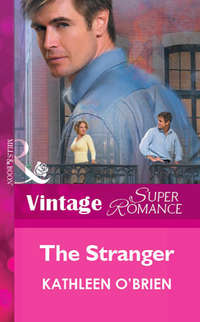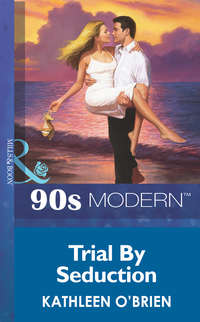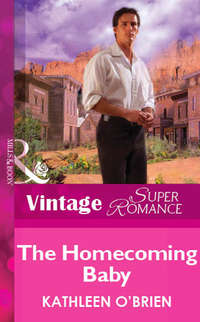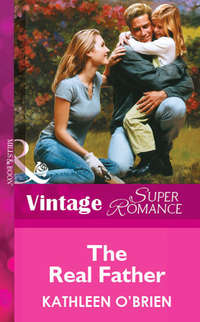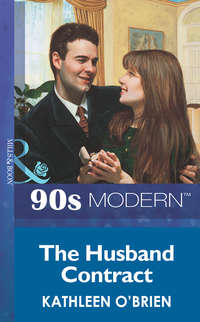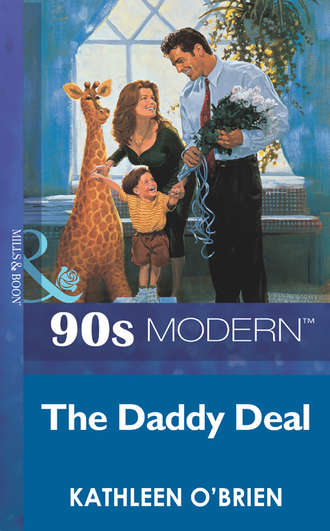
Полная версия
The Daddy Deal
She heard it all as if someone else were speaking. “The doctors say Justin’s new skin graft has to be done right away,” she said. “They think the old one, the one just above his rib cage, has healed awkwardly—and it might be restricting the use of his left arm.” She was proud of the matter-of-fact tone she achieved. The words might be slurred a little, but at least they weren’t spoken through tears. “So I have to find more money, and I have to find it soon.”
Clarke’s face seemed colder than before, more remote. “What about your inheritance from your grandmother? You told me you’d use that to finance Justin’s medical care.”
“It’s gone.” In her mind’s eye, Brooke could see the rapidly decreasing numbers marching across her bank statements. The inheritance had been small to begin with. Two years of expensive surgeries had been like an open drain, and the money had flowed through it in a flood. “I...” She tried to think of a way to put it. “I guess I underestimated the number of op—”
Clarke broke in with a bitter laugh. “I told you, didn’t I? I knew you had no idea what you were getting into. No idea at all.”
“No,” she agreed meekly. He was right. She hadn’t listened to him, hadn’t even wanted to know. You couldn’t put a price tag on love. She had been rescuing Justin, an orphan in a dangerous foreign country, from being sold to the highest bidder by two uncles who had no interest in taking responsibility for a badly burned, badly frightened infant. What did it matter, in such a case, how much the doctors were going to cost?
“You were right. I had no idea at all.” She leaned forward. “Anway, the bungalow is the only asset I have left.”
Clarke raised his brows. “It’s pretty small. Is it worth enough to pay for the operation?”
“No.” She bit her lower lip and folded her hands, white-knuckled, on the table in front of her. “That’s why I needed to see you. Your Richard Alston has always wanted to buy it, you know. A few years ago he offered me almost three times its appraised value.”
Clarke nodded warily. “Yes, but you turned him down. As I recall, he told you then he’d never make the offer again. He’s not a man who takes rejection well. He’s not accustomed to it.”
She drew in a deep breath and tried to sound sweet—the way Clarke liked her. “I know. That’s why I’m coming to you. I was hoping you might be able to coax him into reinstating the offer. Maybe not at the full price he offered before, but something—something that would help me cover the expenses...”
Halfway through the speech, she saw Clarke’s face was tightening. His lips seemed to be closing in on themselves, his eyes disappearing into the folds of their lids.
He was furious. Oh, God. She had so hoped that he could put their personal issues behind him long enough to see that the suggestion she was making him could benefit both of them. But the sight of his tense, offended features was far from reassuring, and she swallowed hard before finishing up in a rush of awkward words.
“So I was hoping that perhaps you could set something up.” She smiled ingratiatingly. “It could work to your advantage, too, earn you some goodwill if he realizes you’re the one making it possible. He might be grateful, and—”
“Wait a minute.” Clarke broke through Brooke’s stumbling explanations, waving his right hand, his diamond-studded signet ring glinting under the electric stars. “Are you telling me that all of this—your call, our date—this really is just about business?”
His color had risen along with his voice, and Brooke had to steel herself not to flinch. All around them, people who had been murmuring politely over their champagne glasses were casting curious, sidelong glances their way.
His scowl, though fierce, looked suddenly a lot like the approach of one of Justin’s two-year-old tantrums, and even through her anxiety, Brooke felt a surge of relief that she hadn’t actually married this man. She must have been mad, quite completely mad, ever to have considered it.
“I did say it was just business.” She defended herself mildly, trying not to inflame him any further, but her tone was firm. “I wanted to meet at your office, but you. insisted on bringing me here—”
“I didn’t have time at my office.” Clarke’s flush deepened. “You said it had to be today, and I was booked solid. I’m a damned busy man, Brooke.”
“I know you are.” She forced herself to soothe him.
“I’m grateful, really I am, that you’re making the time to talk to me now. And of course I’m pleased to get the chance to be part of such a lovely evening....”
She rattled on, not allowing herself to feel humiliated by hand-feeding this petty man’s ego. It was for Justin, she reminded herself desperately.
She gave it her best, but Clarke was clearly only marginally mollified. Finishing his drink with a sharp, backward toss of his head, he drummed his fingers on the small wrought-iron table between them and let his eyes roam the room, checking out the other guests, refusing to meet Brooke’s gaze.
“So what do you think?” She was losing patience with his petulance. Though she knew it was suicidal, the champagne was playing havoc with her self-control. “Do you think Mr. Alston is still interested? I really need to sell the house soon, Clarke.”
Clarke swiveled in his chair. “Jennifer!” he cried in patently feigned surprise. “Look, there’s Jennifer Hanlon!” He stood, excusing himself curtly with a wave of his hand and, with a deliberate discourtesy, pushed his way through the crush of bodies toward a lovely blonde swathed in mink.
At-first, Brooke was too stunned to be angry. Her gaze followed him numbly, watching his slow, self-important progress through the crowd. The dancing was just about to begin, the orchestra already in the pit, tuning up, and the floor was dense with people, all of whom seemed to know Clarke. He stopped every few feet, eager to slap another back, shake another hand.
She tilted her head down, trying to compose herself. What a fool she had been to think that Clarke would help her. He didn’t understand anything. He still thought life was just a power play, where you lived for the chance to one-up your enemies.
He didn’t have any idea how far she had traveled beyond that pinched world of his. He had no idea what it was like to be a parent, to love someone more than you loved yourself. And he didn’t know real grief—didn’t know what it felt like to hear your child crying, begging you to make his pain go away, every syllable falling onto your raw nerves like the lash of a whip, maddening you, making you choke on your own impotent rage and fear, making you offer fate any Faustian bargain you can imagine.
But fate was deaf and didn’t answer.
She drew a deep breath, squeezing her eyes shut. Maybe she should call home. It was only nine, and maybe Justin hadn’t fallen asleep yet. Gretchen let him stay up late, and Brooke couldn’t really blame her for it. When he begged for one more story, it was terribly hard to say no. They were spoiling him, Brooke knew. But he had been through so much....
Yes. She’d call home. She dug blindly through her purse. Hearing Justin’s voice would chase these stupid tears back where they belonged. Justin was her focus. She would just call to say good-night one more time—
“Are you all right?”
At the sound of a strange masculine voice, Brooke looked up guiltily, her hands frozen knuckle-deep in her purse as if she had been caught burrowing through someone else’s wallet instead of her own. To her shock, the man who had battled Clarke over the case of champagne—Clarke had said his name was Taylor, Taylor something, what was his last name?—was standing next to her. Alone. His brunette had vanished.
A stray tear dribbled onto the corner of her mouth, and Brooke felt herself flushing. He was watching her quietly, studying her with the dispassionate curiosity he might have given an intriguing but perplexing painting. She knew what he was thinking. He was probably wondering why she sat here alone downing champagne in the wake of a date who was conspicuously ignoring her. Wondering why she was pale and on the verge of a crying jag. Wondering, perhaps, whether that meant she was an easy mark...
She tried to lick the tear from her lip unobtrusively. Strange. He didn’t look like the kind of man who had to prey on other men’s rejects. In this dim light, some of the details were unclear-eye color, for instance—but he projected the confidence of a man accustomed to finding a welcome wherever he went. Now that he had unfolded himself from the chair, she saw that he was at least six foot two. He wore that tuxedo as if he’d been born in it.
And that smile...
He was holding out a snowy, softly folded handkerchief, smiling at her over his outstretched hand. It was a slow smile, and when it reached his eyes it lit them from within, revealing green sparks that were at once strangely new and amazingly familiar.
“Thank you.” She forced herself to smile back as she accepted the handkerchief. His expression was calmly neutral, but somehow it seemed to impart strength to her. “To tell you the truth, though,” she said, blotting her eyes carefully, then returning the slightly soggy white square with an apologetic grimace, “I was actually digging around in here looking for a quarter.”
He tilted his head, silently speculating, but without a word he extracted a silver coin from his pocket and held it out.
Brooke’s face burned—she must have sounded as if she were panhandling the man—but there was nothing to do but take the quarter. “Thank you,” she said again stiffly, closing her band around it, feeling its hard, cool edges grow warm in her palm.
“The pay phones are in the lobby,” he said conversationally, as if he handed money to crying ladies every day. “But I’m sure one of the ushers will call a taxi for you if you need a ride home.”
“A taxi?” She was momentarily confused, but she followed his gaze across the room and saw that he was looking at Clarke, who was still clutching the blonde, his fingers buried deep in the mink that caressed her shoulders. “Oh...” She shook her head. “No, I just need to call home to check on my son. I’m not leaving.”
“Really?” He raised one brow. “Why not?”
Such unexpected bluntness confused her, and she stared stupidly. for a moment, as if she hadn’t understood him. “Why not?” she echoed hollowly. Oh, God, why had she drunk so many glasses of champagne? She must sound like an idiot. “Well, because Clarke is coming right back. We were in the middle of a rather important discussion, you see, so he’ll have to come right back....”
But even as she spoke, she saw that Clarke was now at the far side of the auditorium, his cellular telephone held self-importantly to his ear, and the blonde still clinging to his arm. He stopped for a moment at the door, saying something to the usher without even lowering the flip phone.
The usher nodded uncertainly, looking uncomfortable, but Clarke spoke sharply to the younger man, who nodded again and began picking his way hurriedly back toward Brooke’s table. She watched his approach helplessly, a dread certainty settling like a weight in her chest.
“Mr. Westover says he regrets he’s been called away,” the usher said when he finally made it across the room. He looked a bit confused himself. “An emergency. He asked me to tell you.”
Brooke nodded. Fury and humiliation warred within her, and the result was a strange, passive paralysis. “Thanks,” she said, as if he had brought her a present. And then, nonsensically, again. “Yes, well. Thank you.”
“Ummm...” The young man shifted from one foot to the other and bit his lip. “Um, the thing is, someone needs to settle Mr. Westover’s bill.”
Brooke slowly turned and stared at the young man blankly. “His bill?” The word had no meaning, really. It was just a collection of sounds. How could Clarke have left her here? If she had imagined a hundred cruel paybacks, she could never have thought of this one. She didn’t know another soul in this room. Struggling single-mom nurses didn’t exactly hobnob with Tampa’s social royalty.
“Well, yes, you see... Mr. Westover bought some champagne at the auction, remember?” He looked pointedly at the glass she held in her trembling hand. “You’re drinking it now. But no one paid for it, you see, and now Mr. Westover seems to have left, and well, I wondered if maybe he had left his credit card with you....”
Brooke whirled, horrified. She set her champagne glass on the table as if it had been poisoned. Seven hundred dollars? Was Clarke insane? Where on earth was she going to get seven hundred dollars? Just five minutes ago she would have considered herself wealthy if she’d been able to dredge up a quarter. She dropped onto the chair, trying to make the suddenly tilting room stand still.
Brooke was hardly a socialite, but even she understood that people who bid at fund-raisers were as honor bound as poker players to make good their debts. She half expected someone to call the manager, to call the police, to tie an apron around her blatantly inferior party dress and send her in to wash the dishes.
Suddenly, she felt an overwhelming, irrational urge to laugh. Seven hundred dollars was a whole lot of dishes.
“No, no, he didn’t give me any instructions,” she managed to say. Somehow she forced herself to look at the man beside her, who had been a nonchalant spectator through the whole embarrassing scene. To her shock, he was smiling composedly down at the perspiring usher. And he was holding out a silver credit card between two long, perfectly shaped fingers.
“It’s no. problem at all,” he was saying soothingly.
“I’m sure it was just an oversight on Mr. Westover’s part. I’ll get him to reimburse me tomorrow.”
“Oh, no!” She couldn’t let this happen. Brooke reached up and clutched the man’s arm. “No, you mustn’t!”
But it was too late. The usher, not fool enough to let such a simple solution slip through his fingers, had already whisked the credit card out of the man’s dark hand. She stared at him, sinking back against the stiff iron of her chair.
“Mr....” she began miserably, wishing she at least could remember his name.
He smiled. “Call me Taylor,” he said graciously. “Taylor,” she repeated weakly. “You mustn’t do that. It’s not up to you to—”
“But I already did.” He pulled out the chair that Clarke had vacated and, settling himself comfortably in it, turned his beautiful smile toward Brooke.
“But you can’t be sure that Clarke will—”
“It doesn’t matter.” He held up the half-empty bottle that still perched in its nest of ice. “I was bidding on it anyway. I’ll be perfectly happy to own the case myself, if it comes to that. It will be reward enough if you’ll invite me to share a glass with you. I think I’d like to make a toast.”
She frowned. She must have had too much champagne. She couldn’t catch up somehow, couldn’t follow the dizzying turn of events. Catch up? Good heavens—when he smiled at her like that, she couldn’t even catch her breath.
“A toast?”
“Yes,” he said, pouring each of them half a glass, then lifting his. “To Clarke Westover, wherever he is right now.”
Her frown deepened. “Do you know Clarke?”
He nodded. “Oh, yes. I know him.” His voice had undertones she couldn’t decipher, but he didn’t give her time to dwell on them. “Let’s toast him, then, for being such a busy man. For leaving this chair empty.” He grinned disarmingly. “You see, I’ve been wanting to meet you all night.”
She knew her cheeks pinkened at the compliment, which pleased her inordinately. He was a very handsome man after all, and the room was ripe with beautiful women. The wriggle of sensual warmth, that delicious female awareness she had felt when she first saw this man, had returned. In spite of the awkward circumstances, she felt strangely exhilarated, triumphant, as if she had proved something. Proved, perhaps, that she wasn’t quite an old, dried-up woman yet.
After all, it wasn’t quite so terrible, not if he really knew Clarke. Clarke would reimburse him tomorrow, as Taylor had said. Still, a dim note of caution sounded. Something in all this didn’t make sense.
“But if you know Clarke,” she said, trying to verbalize that hazy uncertainty, “then why didn’t you come over when he was still here?”
He smiled again, and in that moment she almost felt as if he were an old, trusted friend. His eyes were so familiar somehow, so warm and full of intelligence, full of sympathy. And yet she knew she’d never met him before. If she had, she never could have forgotten it.
Already, though, her nerves were relaxing, and she picked up her glass slowly. Logic be damned. She liked this man, whoever he was. She liked him very much. Now if only he could answer the question, could still her suspicions, and let her give in to the pleasurable glow that was stealing through her.
“If you know Clarke,” she repeated, “why didn’t you join us when he was here?”
“That should be obvious, I’d think,” he answered, clinking the rim of his glass against hers. “Because I simply cannot stand the man.”
CHAPTER TWO
AT FIRST, she was speechless. He’d uttered the words casually, in the offhand way he might have expressed a dislike for broccoli, and she wasn’t at all sure how she should respond. Stalling, she brought her glass to her lips and drank, studying him over the rim, looking for a cue.
To her surprise, his green eyes were alight with an irreverent sparkle. It was infectious, and in spite of herself she felt a smile tickling at her lips. As she began to grin, she felt something odd happening inside her. It was as if a logjam of oppression burst loose with an almost audible pop, and she was washed by a sudden, delicious sensation of freedom.
“Now that you mention it,” she said, still grinning, “I can’t stand Clarke, either.”
“Oh?” He raised one brow.
Nodding, she took another sip, wondering whether this last glass might have pushed her judgment over the edge. Perhaps instead of being forthright and bold, she was merely being drunk. But did it really make any difference? She felt freer than she had in months. She felt good.
“Absolutely cannot stand him. So that makes two of us. Good thing we didn’t marry him, isn’t it?”
“Very.” The creases at the corner of his eyes grew more pronounced. “I for one am deeply relieved.”
“Me, too.” She stared into her champagne, then sipped again thoughtfully. “The bottom line,” she confided, “is that Mr. Clarke Westover is an assous pomp.”
But that hadn’t come out quite right. “A passous...” She frowned and gave up. “A jerk.”
She punctuated her pronouncement by swigging an emphatic mouthful of bubbles, but just as she did so, she glimpsed the smile quirking Taylor’s lips. Immediately, a dangerous spasm of answering laughter tightened her chest. She swallowed quickly and lowered her glass, trying not to spill the champagne as she began to giggle. But the table was small, and her aim was faulty. She knocked her glass against the edge of his, and the stern rocked dangerously. It finally righted itself, but not before spraying a fine mist of liquid across the outer edge of her hand and onto the tabletop.
“Hey,” he said, leaning over to dab the moisture from her knuckles with the handkerchief he bad once again magically produced. “Careful. We’re never going to get our money’s worth out of this champagne if you keep flinging it around like that.”
Our money’s worth. She noticed how instinctively thoughtful he was, how even his pronouns were chosen to minimize her self-consciousness. His touch was very deft, almost impersonal—it held no hint of sleazy opportunism. Over his ministering hand, they smiled at each other in a companionable harmony.
She knew she should feel like a fool. And yet somehow she wasn’t at all embarrassed. He had a gift for making people comfortable, she realized, though perhaps it was merely a lucky by-product of his own sublime self-confidence.
“I’m sorry,” she said sheepishly, shoving her glass to one side. “A friend of mine once had a great word for this. Spiff—” she struggled to get her lips around the syllables correctly “—spifSicated.” She smiled. “I’m afraid I’m getting spifflicated.”
“No, you’re not.” He picked up her hand and swabbed champagne efficiently from the underside. “In fact, in some counties they use that as a legal test. If you can actually pronounce ‘spifflicated’, you’re not.”
“Still,” she said, eying the last two inches of golden bubbles in her glass and shuddering. “That’s it for me.”
She knew, even as she said it, that he might interpret her words as the excuse he needed to get up and say goodbye. His chivalrous mission was accomplished—he had rescued her from Clarke’s petty cruelties. He had loaned her a quarter, paid the astronomical auction bill and wiped her fingers. He had even salvaged her pride—letting everyone in the room see that, though Clarke had abandoned her, she was not entirely friendless. Best of all, he had made her laugh.
It was more unselfish generosity than she had ever received from anyone, much less from a total stranger. She had no right to expect more. Or even to wish for it. She had to let him leave now, if he wanted to.
But he made no move to stand. Instead, he poured himself another glass of champagne and leaned back, stretching his shoulders against the iron rim of the chair, getting comfortable. Her hopes shot up like a kite in a gusting wind, and she suddenly realized how much, how very much, she had hoped he would stay.
“You were with someone earlier,” she began hesitantly, strangely reluctant to broach the subject, but knowing she had to. There was no point in letting herself dream if that slinky brunette was going to return from the ladies’ room any minute and reclaim her white knight. “Is she still here?”
“No,” he said, meeting her gaze directly, without a trace of self-consciousness. “She wasn’t my date. I met her only a couple of hours ago. In fact, I don’t really know most of the people here. I don’t live in Florida. I’m from Massachusetts, from a little town in the Berkshires.”
Not from Tampa, then—not even a Floridian. She couldn’t have been more surprised. He had certainly looked right at home with this crowd. She supposed that being very, very rich was like belonging to an exclusive fraternity—no matter where you traveled, you could always look up the local chapter and be assured of fitting right in.
Still, she knew the tickets to this fund-raiser had been exorbitant. Surely there were places back home in the Berkshires with more legitimate claim on his charity. “So why are you here?” She waved her hand toward the stage. Then she worried—had that sounded rude? She seemed to have dropped her tact down the bottom of that last champagne bottle. “I mean, this is just a little local theater. Why would you come here... ?”
He narrowed his eyes thoughtfully and took another slow swallow of champagne. He held her gaze so long she began to wish she hadn’t asked. Perhaps he thought she was overstepping the bounds of their extremely short acquaintance. He couldn’t understand, couldn’t even know, that she felt strangely as if she’d known him a long, long time. She couldn’t even really understand it herself.
Finally he smiled. “If I said I came here to see you, you probably wouldn’t believe it; would you?”
She grinned and shook her head. “I think that line only works after three bottles.”
“I was afraid of that.” He spread his hands, palms up, surrendering the notion. “Actually, I’m in Tampa because—” he paused “—because I have family here.”
“Not a wife, though?” She could hardly believe her audacity. But it seemed, in her champagne logic, to be better dealt with now than later.
He shook his head. “Not a wife.”
“Or a girlfriend?”
He shook his head again, and a reluctant smile crooked his mouth appealingly. “Not even female.”
“Good.” She relaxed as if she had settled a question of major philosophical importance. “Then you don’t have to leave.”
“No. I’m free to indulge my own pleasure tonight.” He picked up his glass and swirled the liquid in it, as if admiring the way the bubbles burst golden under the electric starlight. “And it would please me very much to spend the evening with you.” He glanced up. “Assuming, of course, that you’re equally free.”




